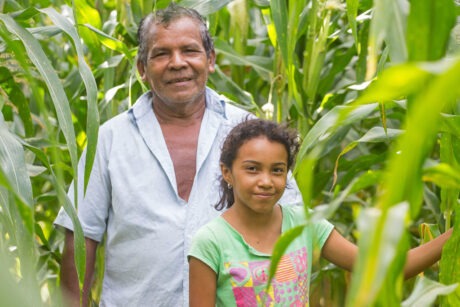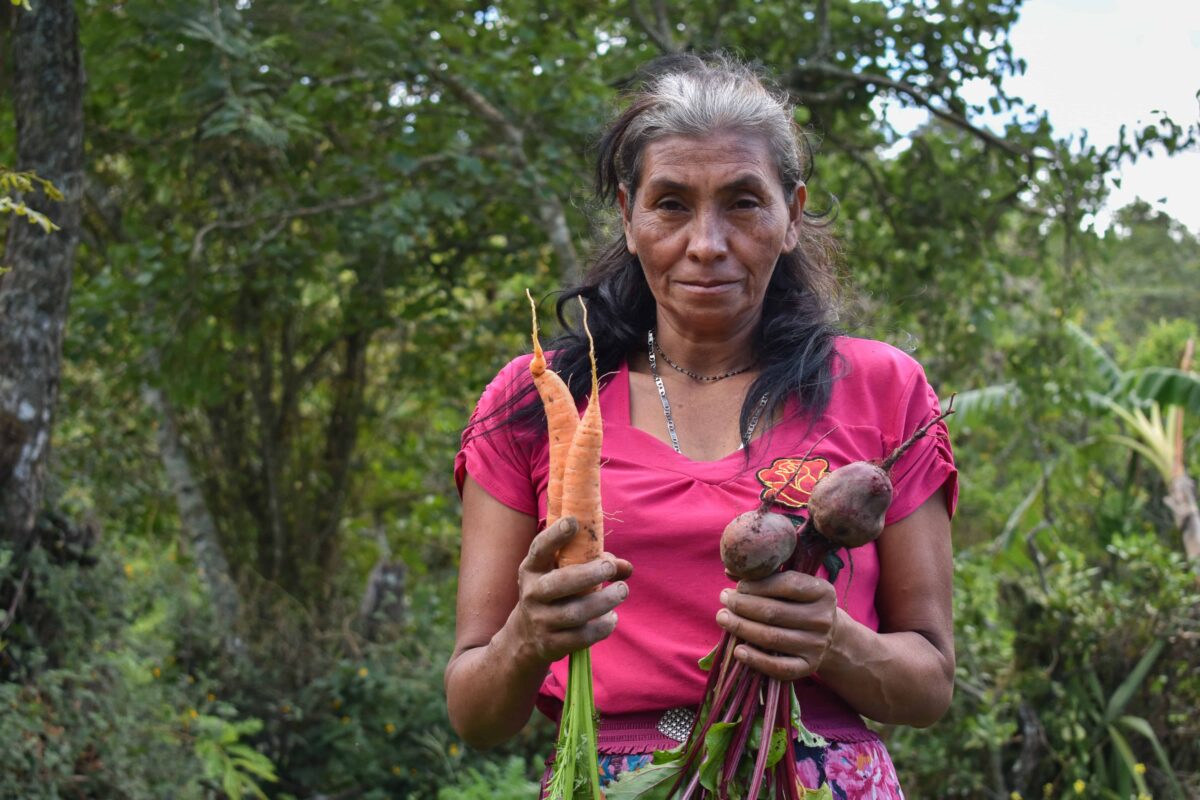El Triunfo, HondurasSchoolchildren line up at a newly opened nutrition center, waiting for their turn to be served a hefty helping of tortillas and chicken soup.
In this region of southern Honduras where food insecurity is prevalent, the center ensures that the María Cristina Martínez School’s 50 students get at least one healthy and substantial meal daily.
This Nutrition Training Center recently opened in the community of Santa Marta in the municipality of El Triunfo. It revitalized an old kitchen space to improve the nutrition of the school’s students and serve as a resource for the surrounding communities.
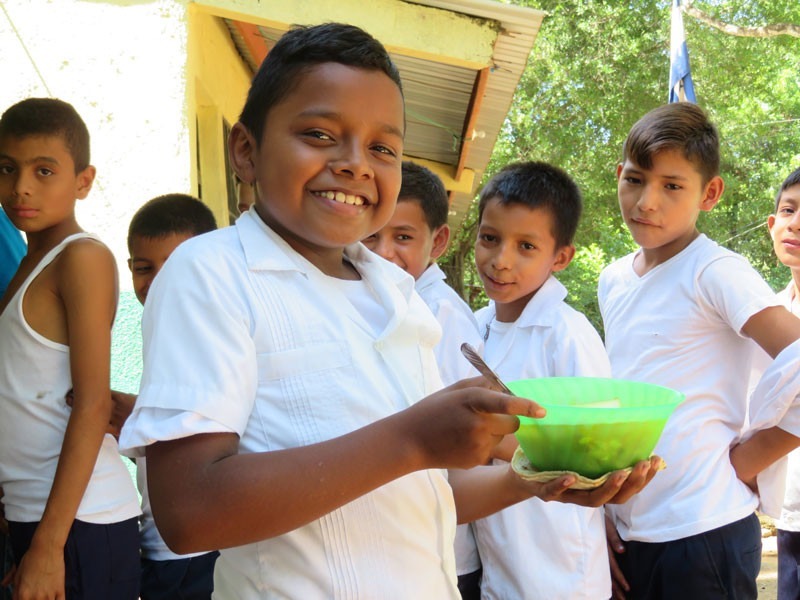
The center was established by the Dry Corridor Alliance (ACS) – PROSASUR program, which works with families to raise incomes, strengthen food security and improve health and nutrition in 6,000 households across the region.
For 11-year-old Junior Garcia Aguilera and his classmates, the facility is diversifying diets and introducing a healthier mix of vitamin-rich foods.
“Before, we only ate rice and beans,” the fifth-grader says. “Now, my friends and I are happy, because it’s good to eat fruits and vegetables to improve the diet.”
A community comes together in the kitchen
The Nutrition Training Center is one part of a Community Nutrition Plan designed by ACS-PROSASUR, which is implemented by Creative Associates International in partnership with INVEST-Honduras, one of two program clusters. It’s funded by the World Bank through the Global Agriculture and Food Security Program.
The center supplements meals with fresh produce from an on-site garden, and mothers of the children take turns volunteering to cook. Staff from ACS-PROSASUR offer guidance on recipes that give growing kids the nutrition they need.
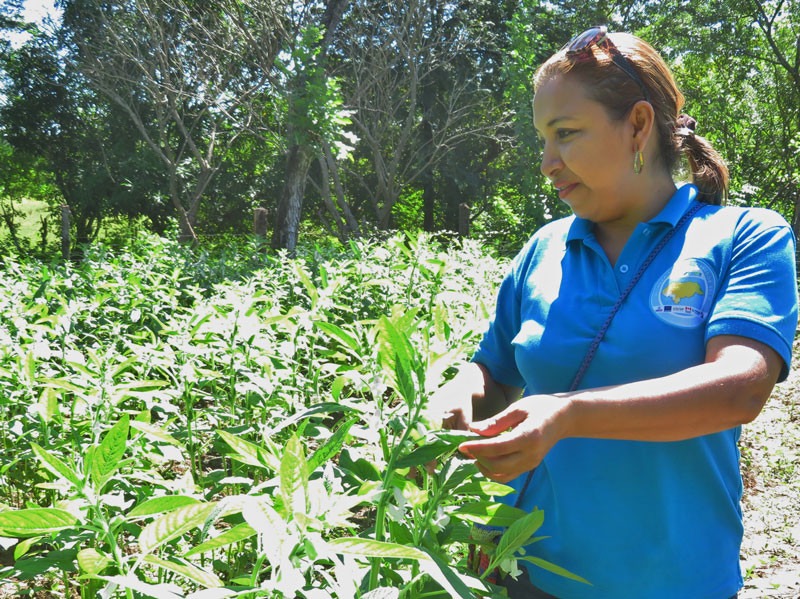
“Since the project came to the school, we have been fully up and running,” says school principal Cruz Lorena Funez. “Our kitchen was inactive for a long time, but now the mothers are motivated to come and make meals here at school. We have learned from the team how to make nutritious food and supplement meals with what we harvest.”
Funez says that other schools in the area have taken notice.
“I tell you, our center is envied. I’ve talked with other principals in El Triunfo about the vegetables we harvest and the meals we have been preparing for our children,” she says. “To my surprise, soon after, I began noticing that my colleagues were sharing photos showing what they were cooking with vegetables from their gardens.”
On this day, Funez explains, volunteers prepared tortillas at home, waking early to grind and knead the dough. Then they came to the center to do the cooking and prepare the soup, adding in coriander, string beans and squash from the garden.
“We are thankful, because before we did not have this kitchen that we have today. It’s very nice, very clean, and the children are eating much better. Rice and beans every day is much better for the children when accompanied by vegetables,” says volunteer Esperanza Moran, whose 8-year-old granddaughter Kimberly attends the school.
Improving health through clean cooking
The condition of many homes in this area make food safety a challenge. Lack of access to clean water, smoke inhalation and unhygienic cooking and mealtime practices can have negative effects on a child’s health and growth. The center is working to combat this by offering a clean cooking space with more modern equipment and fully stocked cabinets of kitchenware.
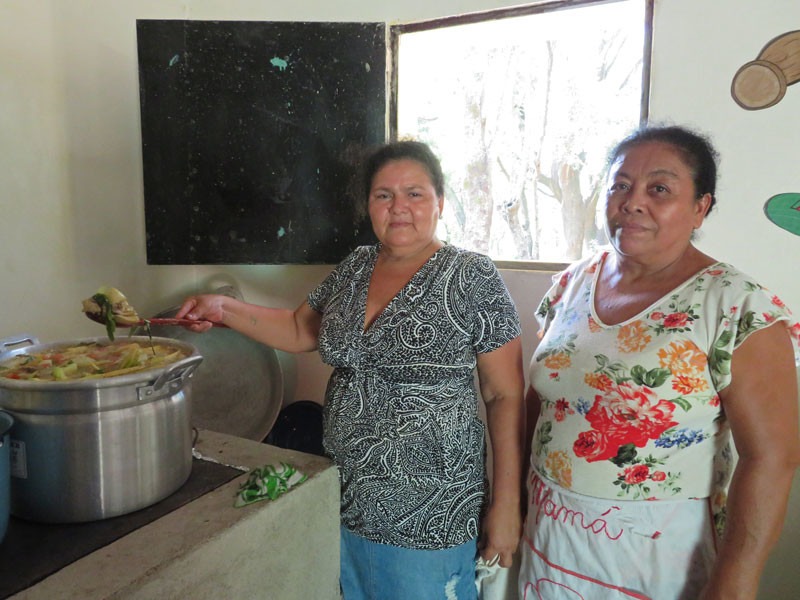
“We provided a water filter to ensure water is free from parasites and bacteria to prevent diarrhea and other sickness among the children,” explains Dr. Ninoska Bulnes, ACS-PROSASUR Health and Nutrition Coordinator. “We also provided an improved stove that helps reduce the use of firewood – part of our environmental efforts, but also a way to prevent health problems caused by smoke.”
Moran says that the upgrades have been welcome in the community and are getting parents excited about making healthy meals for the children.
“Before, we did not even want to come and cook here, because we didn’t have anything to cook with, no pots or pans,” she says. “Today we have clean, filtered water, pots and pans. In short, we have everything a kitchen requires.”
Principal Funez notes that more changes are still to come: ACS-PROSASUR will be partnering with the school and parents to improve the dining area, which is currently just a tin roof over a dirt floor. The program will help provide tables and chairs and lay down concrete.
“Next Saturday, we are going to have a fundraiser with the parents so that we can start putting in the concrete floor,” she says excitedly.
Making nutrition a priority
In the municipality of El Triunfo, the Community Nutrition Plan is reaching more than just the school in Santa Marta; the communities of Cayuya and Dos Quebradas are also benefitting, says Dr. Bulnes.
“Improving nutrition is the main objective and involves many aspects that range from monitoring the growth of children in the communities to the implementation of Nutritional Training Centers,” she says of the plan.
The Nutritional Training Center is managed by members of the community with technical advice of ACS-PROSASUR staff. In addition to providing meals for schoolkids, the center serves as a meeting place in which nutritionists or trained health monitors can give guidance to to families on how to prepare healthier food.
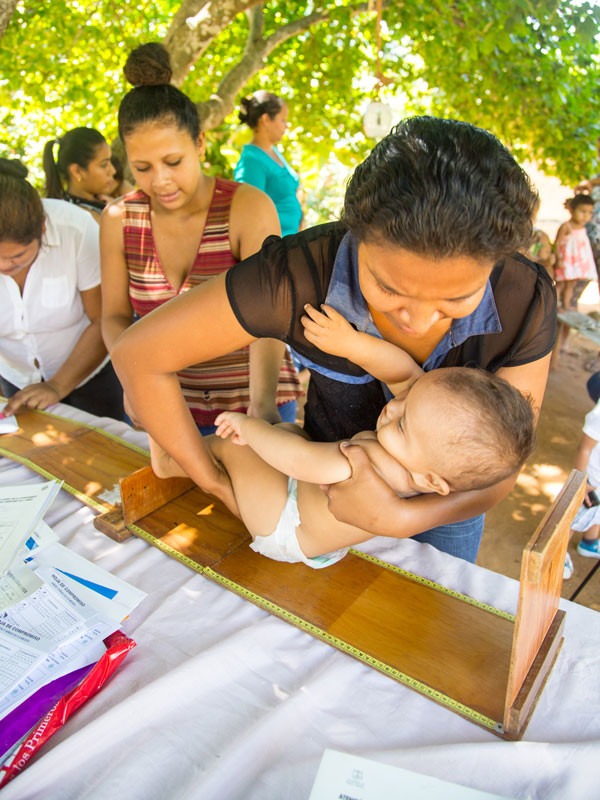
It’s also a place where families can come to monitor the growth of their children and get advice if the kids are falling behind or at risk of having stunted growth.
On the ninth day of every month, mothers bring their children aged 2 years and younger – about 35 children in total – to the center to have their height and weight measured by monitors who are elected by the community and trained by ACS-PROSASUR staff. The monitoring allows mothers to increase their awareness about how their children are growing and receive training and guidance on how to keep their children’s health on track.
Volunteers and staff educate parents on how to prepare fortified foods, diversify diets and make sure children are getting the micronutrients and calories they need.
By supporting the nutrition of children from newborns to sixth-graders, the Nutrition Training Center is working to ensure that these communities’ next generation will grow up healthy and strong.
With editing by Evelyn Rupert.
